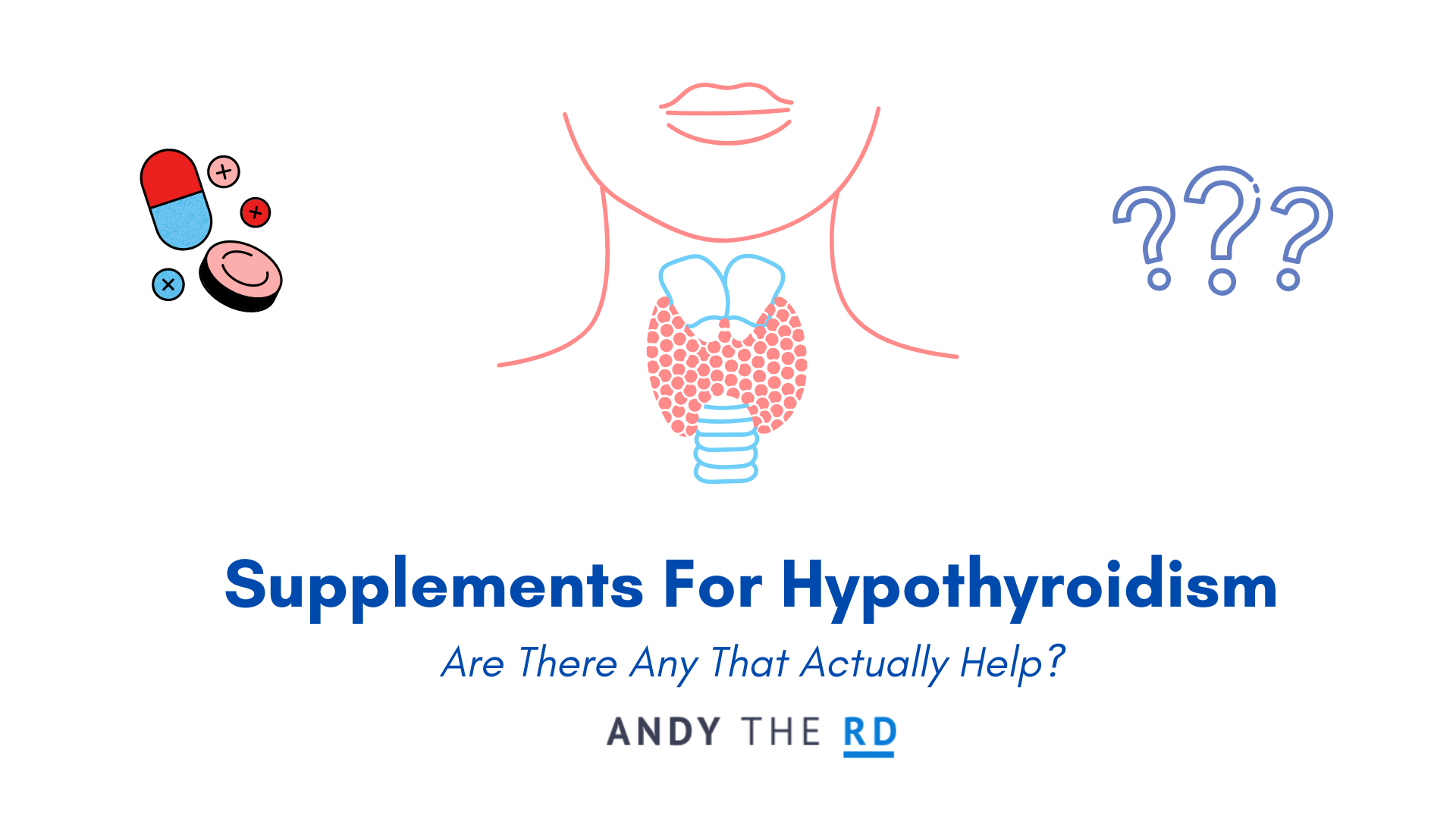I have to start by apologizing for taking this long to write on a topic that is of great interest to my client base and the public at large – hypothyroidism.
In 2018 the hypothyroid medication Synthroid (levothyroxine) was, by a significant margin, the most dispensed medication in Canadian pharmacies.
Health Canada data also suggests that thyroid medication is in the top 3 most frequently prescribed medications for women across every demographic from 25-79.
These data make sense in light of the fact that this medication is the gold standard in care for the management of hypothyroidism.
Yet as a dietitian there are two questions I simply MUST ask – what role does nutrition and/or supplementation have to play in mitigating the risk of hypothyroidism in those who don’t have it AND what is the role of nutrition and/or supplementation (if any) in improving outcomes in those who do?
In today’s article, I will begin to address these questions from the supplemental perspective.
Let’s get right to it.
Vitamin D
The most common cause of hypothyroidism is an autoimmune disorder known as Hashimoto’s disease and we know that Vitamin D has been increasingly identified as an important component of proper immune functioning.
In fact, multiple recently published studies (1, 2) have demonstrated that individuals with hypothyroidism are more likely to be deficient in Vitamin D.
And while the studies I’ve encountered looking at Vitamin D supplementation in those who have hypothyroidism did not yield particularly compelling results, it is important to be aware of the fact that Vitamin D remains a very elusive nutrient for the simple fact that the only group of foods that naturally contains a large amount of it is fish.
If you’ve read my previous article on Vitamin D supplementation, you will know that Vitamin D is a problem in the Canadian context and also that most Canadian’s simply don’t eat much fish.
Salmon is the commonly available species of fish with the highest vitamin D content ( 150 grams or 5 oz will give you 100% of your DV).
Myo-Inositol
Myo-Inositol is a compound that may be familiar to those engaged in the world of PCOS management because it has demonstrated some potential (when utilized appropriately) to improve insulin and androgen levels in women living with PCOS.
As it relates to hypothyroidism, there appears to exist some level of preliminary evidence (3, 4) to suggest that myo-inositol supplementation could improve measures of thyroid functionality in both sub-clinical and autoimmune hypothyroidism.
In the studies above Myo-inositol was jointly supplemented with selenium, which in and of itself has generated some attention as a consideration of interest in hypothyroidism.
Individuals with hypothyroidism may also be more likely to have inadequate selenium and zinc levels.
Beef, chicken, tofu and shiitake mushrooms are commonly available foods high in both Zinc and Selenium.
Synbiotics
Synbiotic is a fancy word for a supplement that contains both prebiotics (food for your healthy gut bacteria) and probiotics (the healthy bacteria themselves).
Given the prominent role that our gut microbiome plays in immune functionality, I suppose its of little surprise that this has become an area of exploration in hypothyroidism management too.
If you’ve read my previous article on PCOS, you will know that synbiotics may have some role to play there as well.
A randomized controlled trial published in 2020 out of the Complimentary Therapies In Medicine journal found that a supplement containing the prebiotic FOS combined with 7 probiotic strains ( L. Casei, L. Acidophilus, L. Rhmanosus, L. Bulgaricus, B. Breve, B. Longum and S. Thermophilus) improved fatigue levels, reduced the medication dose and TSH levels in those living with hypothyroidism.
L-Carnitine
L-Carnitine is a derivative of the amino acid lysine which plays multiple roles in the human body including as it relates to energy metabolism.
Since individuals living with hypothyroidism may be more likely to experience fatigue and associated symptoms, there has been some interest around the use of L-Carnitine as a supplement to help mitigate these outcomes.
In fact, a 2016 experimental study out of the Endocrine Journal found that L-carnitine supplementation helped resolve fatigue in younger individuals ( <50) with hypothyroidism.
Need Help With Hypothyroidism?
Today’s article is an evidence-based appetizer of summarizing a portion of the current state of knowledge for what is a clearly a relevant topic from the public health perspective.
I hope it’s quenched your curiosity for the time being.
Andy De Santis RD MPH
A Special Thank You To Huda Fareed!
Huda is my wonderful writing research assistant who helped locate some of the references used in today’s article.
Given my busy schedule today’s article quite simply would not have been possible without her contribution.
Thank You Huda!
LinkedIn profile on click.




